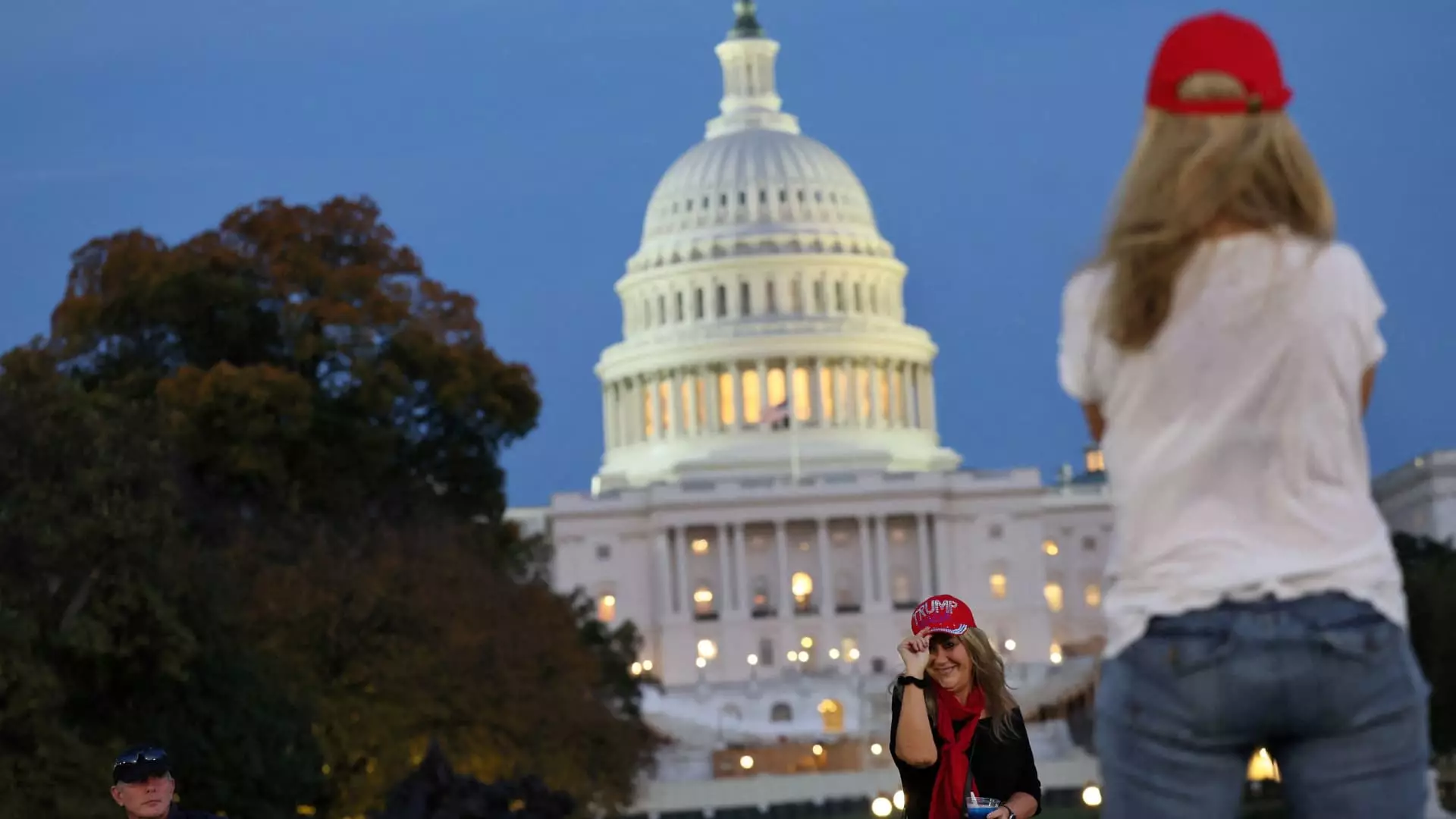The unexpected outcome of the presidential election has left individual investors questioning the implications for their financial futures. Following Donald Trump’s election victory, the financial markets exhibited a noticeable upswing, with significant rallies that saw the Dow Jones Industrial Average surpass 44,000 for the first time. However, financial experts caution against hasty decisions based solely on these initial movements, promoting a more cautious and strategy-based approach.
Markets are often unpredictable, influenced by various factors ranging from economic data to political developments. The positive reaction seen in the markets after Trump’s election win may be attributed not solely to a belief in Trump’s policies but rather a collective sigh of relief at the resolution of a divisive election. Stacy Francis, a financial advisor, highlighted this sentiment by indicating that the post-election rally could be interpreted as the market’s response to clarity after the electoral uncertainty. For individual investors, such movements can spark excitement; however, it is imperative to discern the underlying reasons behind these shifts to avoid confusion.
Despite initial optimism, experts like Jude Boudreaux and Lee Baker advocate for a long-term perspective. They suggest that investors should adhere to their existing financial plans, focusing on their specific goals and risk tolerance rather than reacting impulsively to the political climate. Adjustments might indeed be necessary in response to evolving policies, but the foundation of a solid financial strategy remains critical.
Expectations surrounding Trump’s economic policies contribute largely to investor sentiment. Many financial analysts foresee a shift toward less stringent regulations, especially in sectors such as energy, finance, and industry. This expectation could potentially lead to increased investment in these sectors, thereby catalyzing growth. Marguerita Cheng emphasizes that the allocation of assets should fundamentally be guided by individual circumstances rather than fluctuating political landscapes.
It’s important to note, however, that while investors anticipate benefits from proposed tax cuts and deregulations, the realities may evolve differently. The potential for altering tax policies can lead to market volatility and the introduction of risks, challenging the idea that specific party affiliations guarantee favorable economic outcomes. The historical performance of the stock market reveals that it has generally thrived irrespective of the political party in power. This leads to the essential conclusion that stability in strategy, rather than political allegiance, should guide investment decisions.
Historically, significant tax legislation can have profound implications on economic activity and, consequently, the stock market. The enactment of the Tax Cuts and Jobs Act during Trump’s first term introduced several key changes, such as reduced tax rates and a larger standard deduction. With Trump’s second election now in place, speculation arises regarding the possible continuation or extension of these tax policies. Investors are banking on the likelihood of maintained or enhanced tax cuts, which could spur economic growth heading into 2026 and beyond.
However, while potential tax legislation may paint a rosy picture for many, the legislative process is far from straightforward. The intricacies of draft laws and potential political negotiations can leave investors cautious about relying too heavily on speculative benefits arising from proposed policies. As David Haas notes, without concrete legislation, investors risk basing financial strategies on uncertain outcomes.
Trump’s presidency carries with it the potential to impact inflation rates, particularly due to proposed policies like tariffs and increased consumer spending fueled by tax cuts. While the Federal Reserve has recently succeeded in moderating inflation—bringing it closer to its 2% target—any shift in economic policy under Trump may usher in new challenges. Increased tariffs on imports could elevate prices while tax cuts might put more disposable income in the hands of consumers, leading to possible inflationary pressure.
The delicate balance that the Federal Reserve navigates between stimulating growth and controlling inflation complicates the economic landscape. As the central bank adjusts interest rates in response to evolving economic conditions, Trump’s leadership style and policy decisions will be vital variables in this equation. Therefore, investors must remain attentive to how these dynamics evolve throughout Trump’s presidency, adjusting their strategies as required.
As the implications of Trump’s election unfold, individual investors should find comfort in their established financial strategies while remaining adaptable to changes in policy and market conditions. A steady focus on personal financial goals, combined with a critical evaluation of political and economic developments, will prove essential in navigating this tumultuous financial landscape.

